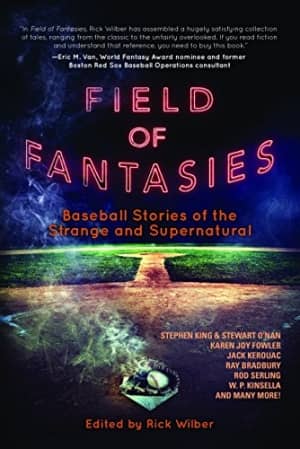Was Don Newcombe a Hall of Famer? – Spring means Baseball
 I have occasionally strayed off topic here at Black Gate, KISS, the Beach Boys, Humphrey Bogart…stuff like that. I played tee-ball as a tyke and have loved baseball my whole life. With a new season dawning (one in which my beloved Dodgers are the reigning World Series champs for the fourth time since I was born), I wanted to talk baseball. And I think that sharing about Don Newcombe is the way to do it.
I have occasionally strayed off topic here at Black Gate, KISS, the Beach Boys, Humphrey Bogart…stuff like that. I played tee-ball as a tyke and have loved baseball my whole life. With a new season dawning (one in which my beloved Dodgers are the reigning World Series champs for the fourth time since I was born), I wanted to talk baseball. And I think that sharing about Don Newcombe is the way to do it.
In 1949’s (sappy) It Happens Every Spring, Ray Milland’s chemistry professor suffers through his life half of the year, to get to baseball season.
Lord Tenneyson said ‘In the Spring a young man’s fancy lightly turns to thoughts of love.’ For a long time, it was baseball, not love, that young men thought of in American Spring.
When Spring Training would roll around in Florida (and then later, also in Arizona), I used to say “If they’re playing baseball somewhere, there’s till some hope for the world.” I’m not sure I believe that in these messed-up days. But the Dodgers (the epitome of a small-market, hard-working franchise, competing against big city, big money teams – HA HA HA) are working out and playing games in Arizona. It’s baseball season, which helps me ignore that my Ohio wind chill is 15 degrees right now.
…
